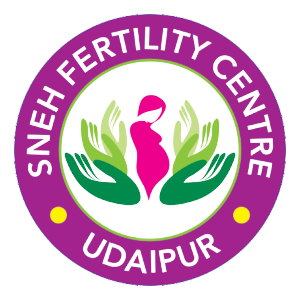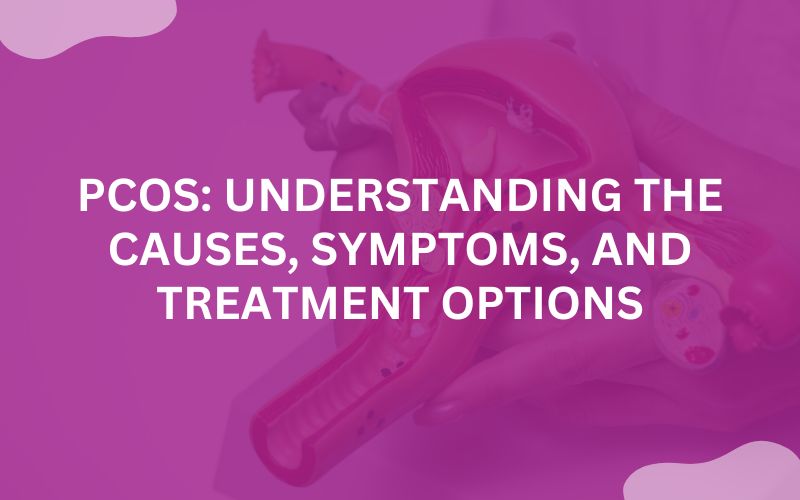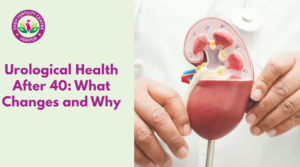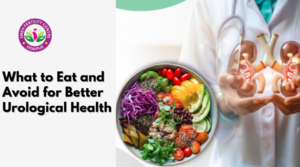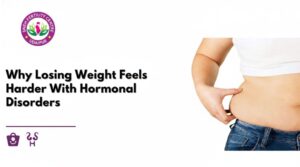Polycystic Ovary Syndrome (PCOS) is a common hormonal disorder that affects women of reproductive age. It is characterized by a combination of symptoms and has a significant impact on a woman’s health and well-being. At Sneh Fertility & Urology Center, we are committed to providing comprehensive care and support for women dealing with PCOS.
Causes of PCOS
The exact cause of PCOS remains unclear, but it is believed to be a result of a combination of genetic and environmental factors. Some key contributors include:Insulin Resistance: Many women with PCOS have insulin resistance, where the body’s cells become less responsive to insulin. This can lead to elevated insulin levels, which may increase androgen production and disrupt ovulation. Genetic Factors: PCOS often runs in families, suggesting a genetic predisposition to the condition. Hormonal Imbalances: Women with PCOS typically have higher levels of androgens (male hormones), which can interfere with the regular functioning of the ovaries.
Symptoms of PCOS
PCOS presents with a variety of symptoms, which can vary in severity from woman to woman. Common symptoms include:Irregular or Absent Menstrual Periods: Women with PCOS may experience infrequent or prolonged menstrual cycles. Excess Hair Growth (Hirsutism): Increased levels of androgens can lead to excess hair growth on the face, chest, and back. Acne and Skin Darkening: Hormonal imbalances can cause severe acne and darkening of the skin, particularly around the neck, groin, and underneath the breasts. Weight Gain or Difficulty Losing Weight: Many women with PCOS struggle with weight management. Thinning Hair on the Scalp: Hair loss or thinning on the scalp is a common symptom. Difficulty Getting Pregnant: PCOS is a leading cause of infertility due to irregular ovulation.
Treatment Options for PCOS
Managing PCOS involves a multifaceted approach, tailored to the individual’s symptoms and health goals. At Sneh Fertility & Urology Center, we offer a range of treatments, including:
Lifestyle Modifications:
- Diet and Exercise: A balanced diet and regular physical activity can help manage weight, reduce insulin resistance, and improve overall health.
- Weight Management: Maintaining a healthy weight can help regulate menstrual cycles and reduce symptoms.
Medications:
- Hormonal Birth Control: Birth control pills can regulate menstrual cycles, reduce androgen levels, and alleviate symptoms like acne and hirsutism.
- Anti-Androgen Medications: These medications can help manage excess hair growth and acne.
- Metformin: Commonly used to improve insulin sensitivity and regulate menstrual cycles.
Fertility Treatments:
- Ovulation Induction: Medications such as clomiphene or letrozole can help stimulate ovulation.
- Assisted Reproductive Technologies (ART): In vitro fertilization (IVF) may be recommended for women struggling to conceive naturally.
Other Therapies:
- Laparoscopic Ovarian Drilling (LOD): In severe cases, this surgical procedure can stimulate ovulation by reducing androgen levels in the ovaries.
Comprehensive Care at Sneh Fertility & Urology Center
At Sneh Fertility & Urology Center, we understand the complexities of PCOS and its impact on your life. Our team of experienced urologists and sexologists is dedicated to providing personalized care and advanced treatment options to help you manage PCOS effectively. Whether you’re seeking diagnosis, treatment, or guidance on reproductive health, we’re here to support you every step of the way.
Understanding PCOS is crucial for effective management and treatment. If you have concerns about your reproductive health, don’t hesitate to reach out to us at Sneh Fertility & Urology Center. We are committed to helping you achieve optimal health and well-being.
For more information or to schedule a consultation, please visit our website or contact us directly. Let us help you take control of your health and live your best life.
